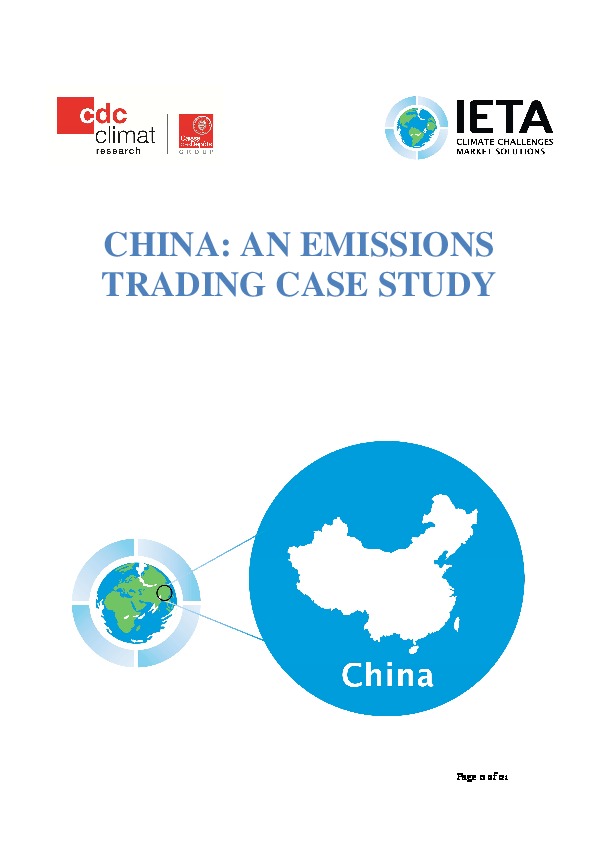CHINA: AN EMISSIONS TRADING CASE STUDY
By Marion Afriat, Emilie Alberola, Jeff Swartz, Katie Kouchakji.
I4CE and IETA would like to thank Emilie Alberola, Lara Dahan, Sarah Deblock, Katie Kouchakji, Zhuli Hess, Xiaodong Jia, Emily Spears and, Massimiliano Varrucciu for their very helpful comments and information for this case study. We take full responsibility for any remaining errors.
This case study incorporates all Chinese government measures over the past six years related to the development of China’s emissions trading policies. The authors have reviewed all relevant government documents to inform this case study. It is divided into two parts: a summary of the seven ETS pilots in China to date, followed by a progress report on China’s national emissions trading system (ETS) which is currently under development. This case study is a joint project of IETA and I4CE.
